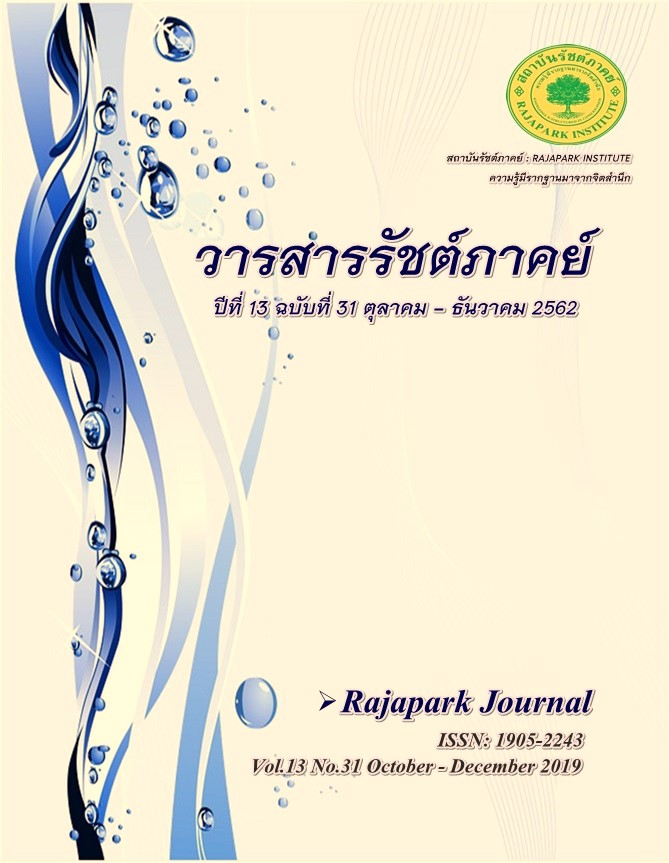Constructing and Maintaining Pheu Thai Party’s Political Bastion in Northeastern Region of Thailand
Main Article Content
Abstract
This study is conducted through qualitative research with three main objectives: (1) To examine strategy formulation in constructing and maintaining political support of Pheu Thai party in Northeastern region after the dissolution of People’s Power Party under military Coup between September 2006 to April 2018; (2) To study political and and legal obstructions toward political activities for maintaining Pheu Thai party stronghold after Coup d’état during May 2014 to April 2018; (3) To examine strategy formation for the upcoming election. Research Findings: Politics is a crucial factor that affect strategy formulation in constructing and maintaining political bastion of Pheu Thai party in Northeastern Thailand. Like former parties (Thai Rak Thai and People’s Power party), political marketing and communication are Pheu Thai’s strategies aiming at bastion maintenance in Northeastern region. 3.The major obstructions were the enactment of Constitution of the Kingdom of Thailand Year 2017 specifically Article 265 and Article 279, and orders of National Council for Peace and Order (NCPO). 4.The freedom of formulating political strategy to captivate political bastion is confined under enacted laws.
Article Details

This work is licensed under a Creative Commons Attribution-NonCommercial-NoDerivatives 4.0 International License.
Views and opinions appearing in the Journal it is the responsibility of the author of the article, and does not constitute the view and responsibility of the editorial team.
References
Betz, H. (1998). Introduction: The new politics of the right: Neo-populist parties and movements in established democracies. Hampshire and London: Macmillan Press.
Canovan M. (2002). Taking politics to the people: Populism as the ideology of democracy. Hampshire and New York: Palgrave.
Davis, G. A., & Scott, J. A. (1983). Training creative thinking. New York: Holt, Rinehart, and Winston.
Deutsch, K. W. (1966). The nerves of government: Models of political communication and control. New York: The Free Press.
Dubrin, J. (1998). Leadership study finding: Practice and skills. Boston: Houghton Mifflin Company.
Laothamatas, A. (2006). Thaksin-Populism. Bangkok: Matichon.
Less-Marshment, J. (2001). The marriage of political and marketing. Political Study, 49, 692-713.
Newman, B. I. (1994). The marketing of the president. CA: Sage Publication.
Noksuan, S. (2010). Comparative Politics and Government. Bangkok: Chulalongkorn University.
Pongsapit, A., & Kuwinpun, P. (2002). Patronage system. (3rd ed.). Bangkok: Chulalongkorn University.
Rattanadilok Na Phuket, P. (2007). Leadership and practical guidelines for local administrators under changing contexts. Journal of Local Development, 2(1), 121-148.
Thamrongthanyawong, S. (2006). Public policy: concepts, analysis, and processes. (14th ed.). Bangkok: Sema Dharma.
Weber, M. (1947). The theory of social and economic organization. (A. M. Henderson & Talcott Person Trans.). New York: Harold Process.
Yeema, B. (2004). Populist Policy Platform and Economic Power: The Political Economy of THAI RAK THAI PARTY’S Election Success. Doctor of Philosophy of Science, Chulalongkorn University.


